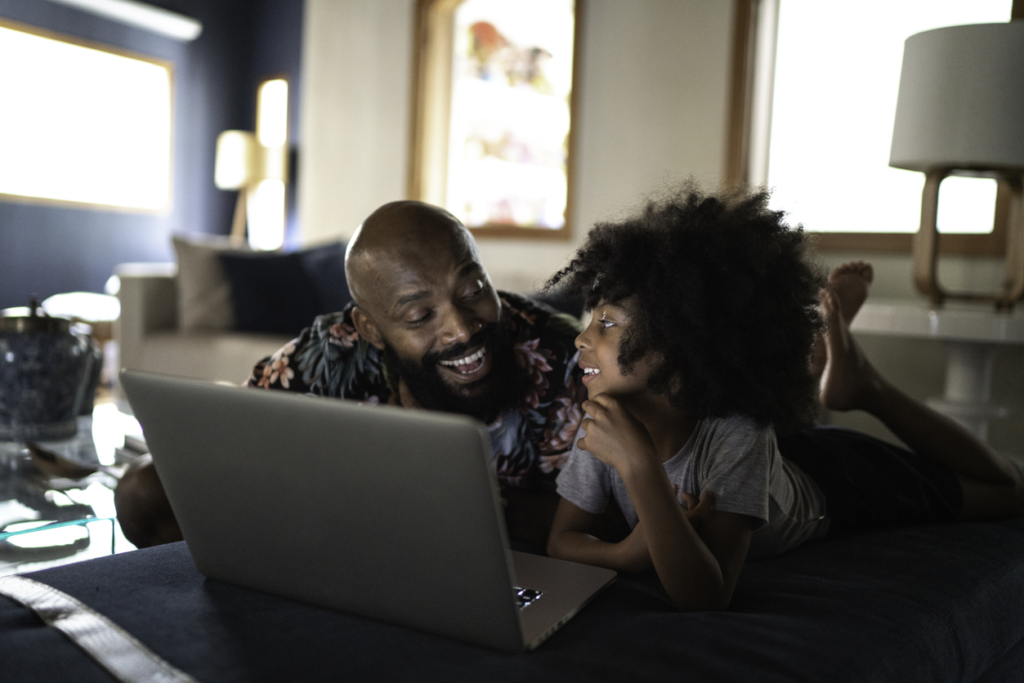No one has the perfect answer for how to best handle the chaos of a global pandemic. What matters during a time like this is to be human with one another.
Lindsy Ogawa, Director of Practice and Field Advancement
Education Reimagined is hosting an on-going series of Lab Forums for learner-centered leaders in The Learning Lab and SparkHouse communities. Each week, we will be highlighting the insights that emerge from those conversations. The first forum touched on why they were uniquely prepared for the COVID-19 pandemic. The second focused on the power of trusting relationships. The third showcased how learner-centered leaders are strengthening their communities. The fourth challenged us to take full advantage of the new flexibilities the current moment is providing. And, the fifth and final for this series invites us to acknowledge what real, authentic learning looks like.
Concerns about the health and wellbeing of ourselves, our families, our neighbors, and our communities have been front and center for more than four weeks now. As we continue wondering when this will finally be over, we are learning important lessons about what keeps our spirits up during distressing times.
From what I’ve personally experienced and have heard others express during this pandemic, the number one “spirit lifter” seems to be the conversations we have with people we love and trust. It makes sense then, when I speak with learner-centered leaders about their community’s transition to “distance learning,” that the relationships they have intentionally built with young people and their families have provided some ease into the transition.
Of course, learner-centered transformation takes more than trusting relationships, but it can’t occur without them. And, during a time of stay-at-home orders, relationship-building with young people and their parents and guardians is a powerful—if sometimes tricky—place to start.
So, what can we do to effectively communicate with parents, guardians, and families?
During our second Lab Forum, a group of learner-centered leaders came together to discuss and unpack how they are communicating with the learners, families, and guardians they serve.
Below are the takeaways from the conversation. As you read through each section, we invite you to see these takeaways as an opportunity to pause and think about your own work and how you might move forward with your transformation efforts.
1. Empathize and connect on a human level.
No one has the perfect answer for how to best handle the chaos of a global pandemic. What matters during a time like this is to be human with one another. Remember, you aren’t just a child’s educator. You are also a parent, sibling, and/or someone’s child yourself. Use your various identities as a point of connection when you speak with young people and their parents or guardians.
Ask questions like, “How are you doing and what do you need right now?” Talk about the worries and concerns you’ve been trying to manage with your own family and the support you’ve found helpful. At the end of each day, check in with the young learners you serve and ask, “What do you wish you did more or less of today?” “What times of the day or days in the week have been the hardest?” “What have you seen that’s inspired you lately, and what matters to you about that?”
These questions aren’t about social etiquette. This is about taking care of each other. This is about listening, sharing, and connecting as human beings. This is about creating an opening to move beyond instructions and updates (albeit necessary at times) to nurture a conscientious community.
2. Be a community catalyzer; leverage young people and families to support one another.
Communication is more of an art than a science. There is no magic formula, no perfect number of phone calls or emails to send per week, and no communication platform that will universally work for everyone. Learning communities are having to strike a delicate balance between support that’s helpful but not overbearing—attempting to avoid communication burnout and still only reaching some families.
To help strike this balance, consider tapping into the pre-existing social networks within your learning community. If you are struggling to reach a subset of learners, ask which young people and families are best connected to them and how they might have a greater chance discovering the support they need. You might learn that some young people have to babysit their siblings while their parents work, a device isn’t operating as expected, families are experiencing issues with translating, or you have incorrect contact information altogether.
Even with trusting relationships in place, full-time “distance learning” requires a shift in communication styles. Taking the time to discover how we can best support each learner and their family now can become a major component of a new communication strategy that equips you, your young people, and families to check-in and take care of each other on a regular basis, even beyond a time of social distancing.
3. Support young people and families to see life as the curriculum.
The most common narrative in conventional education is that the best (or only) learning happens in school and when assigned by a teacher. This moment, particularly as testing and grades are being tossed aside, is an opportunity to reimagine what we mean by “core content.”
Lessons in crisis management, self-care, and civic and community engagement are daily learnings young people are experiencing right now. Young people and families are aware of this as their reality, but may not recognize these experiences as learning.
There’s life and then there’s school.
How might you use this as an opportunity to shift that mindset and show that life is the most relevant curriculum we have available—pandemic or not? If we lean into the learning opportunities that are present in this moment, we might collectively discover life’s challenges are the curriculum worth tapping into now and when schools reopen.
4. Shine a light on learner agency—what it might look like and why it is important.
Learner agency is about developing the capacity and freedom of young people to exercise choice so they can know themselves, discover their own gifts, and develop themselves into confident lifelong learners. To the untrained eye, developing learner agency might not look like learning.
For families more familiar with a conventional education system that has been designed around control and efficiency, they might look at learner agency and not see its relevance for their child’s “academic progress.” When academics are the only concern, the growth and development of the whole child can feel like a hard topic to bring up.
Ask families to observe the strengths and challenges of their children, beyond school subjects. How are children reacting to experiences that challenge them? Will they self-advocate and be in support of others? What are their curiosities (and do they know what they can do to dig into those questions and interests)?
Then, ask your learning community how you might support families to build learner agency. What kinds of conversations can be had so families know what their children are capable of? Could you host virtual parent workshops to develop the capacity of families to develop agency at home?
Wrap-Up
Although many families who have joined learner-centered environments were enrolled into the dynamic shift learner-centered learning would be, during extreme moments of uncertainty, they can find it easier to opt for what’s more familiar. This is an opportunity to re-enroll families and showcase that when young people are engaged in learning that matches their interests and strengths, they can surprise all of us with what they are truly capable of achieving.

